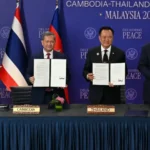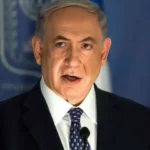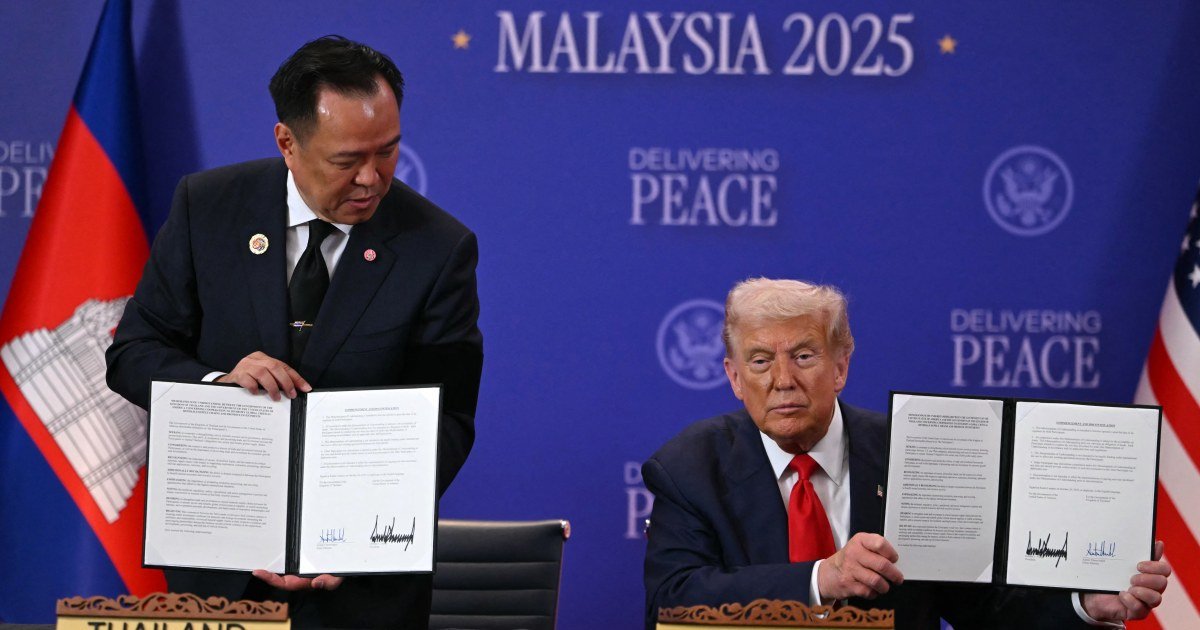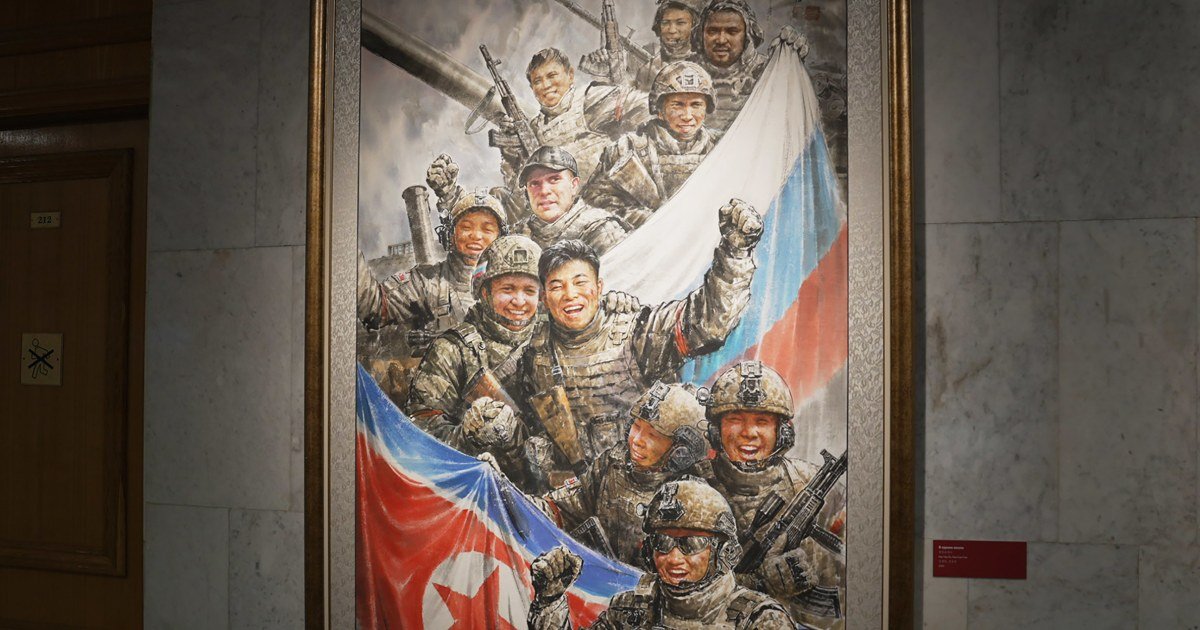KUALA LUMPUR, Malaysia – President Donald Trump began his trip to Asia on Sunday by presiding over the signing of an enhanced ceasefire agreement between Thailand and Cambodia that he helped mediate earlier this year.
July’s five-day border conflict between the two Southeast Asian neighbors killed dozens of people and displaced hundreds of thousands of civilians in both countries.
The leaders of Thailand, Cambodia and Malaysia were on stage with Trump for the signing of the Kuala Lumpur Peace Accords, named after the Malaysian capital where negotiations were held in July.
Standing in front of a backdrop that read “Making Peace,” Trump said the conflict between Thailand and Cambodia was one of eight wars his administration had ended since taking office in January.
“On behalf of the United States, I am proud to help resolve this conflict and build a future for the region,” Trump said.
Trump recalled receiving phone calls from the prime ministers of Thailand and Cambodia during a visit to his Scottish golf course this summer.
“Turnberry is a great place, but I said this is much more important than playing a round of golf,” Trump said. “So we sat there all day, making phone calls.”
Trump also took a moment to acknowledge the death Friday of 93-year-old Queen Mother Sirikit of Thailand, who he said embodied “dignity, goodness and grace.”
Under the terms of the agreement, Thailand will release 18 detained Cambodian soldiers and observers from the Association of Southeast Asian Nations (ASEAN) will be deployed.
Trump thanked Malaysian Prime Minister Anwar Ibrahim, ASEAN chair, for facilitating the talks. Anwar, in turn, thanked Trump for his role in brokering the ceasefire.
“The world needs leaders who strongly promote peace, and to achieve that you have to break some rules, like they did today,” he said, referring to Trump’s invitation to travel with him from the airport to the ceremony at the Kuala Lumpur Convention Center, in violation of security protocols.
Cambodian Prime Minister Hun Manet also thanked Trump for his “tireless efforts” to make the peace deal a reality, repeating an earlier promise that Cambodia would nominate Trump for the Nobel Peace Prize.
Thai Prime Minister Anutin Charnvirakul He said the agreement would “provide the foundation for lasting peace.”
After the peace deal was signed, Trump (who had threatened to impose severe tariffs on both Thailand and Cambodia if the two countries did not reach an agreement) signed a reciprocal trade agreement with Cambodia and a framework for a reciprocal trade agreement with Thailand.
Thailand is removing tariff barriers on 99% of US products, while Cambodia is removing tariff barriers on all US products. The United States will maintain a 19% tariff rate on imports from both countries.
Trump also signed a trade deal with Malaysia, which U.S. Trade Representative Jamieson Greer said would “modify its tariffs and non-tariff barriers.” Malaysia is also subject to a US tariff rate of 19%.
Additionally, Trump signed agreements with Malaysia and Thailand on critical minerals, which are key components of electronic devices and defense technologies.
Finding alternative sources of critical minerals has become a matter of urgency for the United States after China, which has a near monopoly on their production and processing, announced export controls as part of the ongoing US-China trade war.
Speaking at the signing of the US-Malaysia trade deal, Greer said it was important to secure critical mineral supply chains “for our people and the security of our economies.”
Malaysia is the first stop on Trump’s trip to Asia, which will also take him to Japan and South Korea.
While in Malaysia, Trump will also attend the annual summit of ASEAN, a regional group with 11 members after East Timor was formally admitted on Sunday.
During his first term as president, Trump attended the ASEAN summit only once, raising questions about his administration’s commitment to a strategically important region that both the United States and China are courting.
Attending this year’s summit “sends the lasting message that the United States is back and ready to provide strong countermeasures and deterrence against China in economic and security capabilities,” said Collins Chong Yew Keat, a strategy, security and foreign affairs analyst at Universiti Malaya in Kuala Lumpur.






